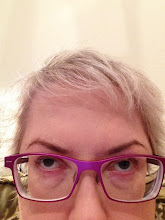But what, I hear you ask, does this have to do with Jane Austen and hypochondria? Fear not, for my grasshopper-like brain has been at work!
In some blessedly quiet moments during the aforementioned slumber party, I had two options; one to retire to a corner where I could rock and mutter to myself until the children left; the other, which I chose, to wonder about the manner in which Jane Austen spent her own birthdays.
Jane Austen was born on 16th December, 1775, a time when an individual's birthday, especially when on of a large family, was not given the level of import that it is now. On the occasion of her birth her father wrote the following letter:
Steventon: December 17, 1775.
DEAR SISTER,–You have doubtless been for some time in expectation of hearing from Hampshire, and perhaps wondered a little we were in our old age grown such bad reckoners, but so it was, for Cassy certainly expected to have been brought to bed a month ago; however, last night the time came, and without a great deal of warning, everything was soon happily over. We have now another girl, a present plaything for her sister Cassy, and a future companion. She is to be Jenny, and seems to me as if she would be as like Harry as Cassy is to Neddy. Your sister, thank God, is pure well after it.
Still, I searched through her extant letters hoping for some glimpse of how her birthdays were spent. I was interested to note that the first line of the first letter is actually devoted to her sister Cassandra's birthday:
Steventon: Saturday January 9
In the first place I hope you will live twenty-three years longer. Mr Tom Lefroy's birthday was yesterday, so that you are very near of an age.
The above was the entire sum of Jane's mention of the occasion; from this it would appear that very little fuss was made of such an event.
In 1798 Jane wrote to Cassandra on 18th December, two days after her birthday, so I had some hope of finding some mention of the occasion. However, apart from a mention of a sum of money, which may or may not have been a birthday gift, the only reference to the event was this:
" - I am very much obliged to my dear little George for his messages, for his Love at least; - his Duty I suppose was only in consequence of some hint of my favorable intentions towards him from his father or Mother. - I am sincerely rejoiced however that I ever was born, since it has been the means of procuring him a dish of Tea. - "
Further mentions of birthdays in Jane Austen's letters are scant, and only touch on the subject. However, while scanning the letter of 18th Dec 1798, I was struck by the following lines:
" - My Mother continues hearty, her appetite & nights are very good, but her Bowels are still not entirely settled, & she sometimes complains of an Asthma, a Dropsy, Water in her Chest & a Liver Disorder."
I find it quite striking that almost as much mention is made of her hypochondriac mother's health as is made of her own birthday. In fact, a passage of every single extant letter is devoted to her mother's health; on some occasions the entire letter is composed of such news.
Given the fact that Jane Austen's mother lived to a venerable old age, we can only conclude that there was little seriously amiss with her health and that she is the model for many of the ridiculous hypochondriacs featured in Jane Austen's novels, such as Mrs Bennet in Pride and Prejudice, Frank Churchill's aunt in Emma, and Anne Elliot's sister Mary in Persuasion.
However, there are those characters in her novels whose illnesses are genuine, and who are treated with greater respect by Jane Austen's pen. Emma's father Mr Woodhouse, though considered by many to be yet another hypochondriac, is treated much more kindly than the other, more ridiculous characters of the other novels. There is an interesting difference, however, in his character; his concerns are not merely for his own health, but are very much for the health of those he cares for, in sharp contrast with the selfishness of, for example, Mary Elliot. It appears therefore that Mr Woodhouse was not a hypochondriac, but a genuine invalid. Though he was naturally preoccupied with his own health he never ceased to have regard for the health, safety and feelings of others.
In her final illness Jane Austen seems to have taken Mr Woodhouse's conduct as an example for her own. Though writing honestly of her symptoms, such as in this extract from her letter to her niece Fanny Knight, 23-25 March 1817:
" - Many thanks for your kind care for my health; I certainly have not been well for many weeks, & about a week ago I was very poorly, I have had a good deal of fever at times & indifferent nights, but am considerably better now, & recovering my Looks a little, which have been bad enough, black & white and every wrong colour. I must not depend on being ever very blooming again. Sickness is a dangerous Indulgence at my time of Life. - "
It is clear from the above that, while wishing to give a full report of her health, Jane Austen does not wish to descend into hypochondria, that "dangerous Indulgence". Later in the same letter, she enquires and reports with interest on "Little Harriet's headaches", "William's cough", and the health or otherwise of several other friends and family members, in direct contrast with the usual behaviour of her fictional hypochondriacs. Even in her last letter, which was to her niece Fanny Knight, she spent a considerable amount of the letter in commiserating with her niece after a family bereavement and discussing the health and welfare of others, only briefly interrupting to say:
" - I continue very tolerably well, much better than any one could have supposed possible, because I certainly have had considerable fatigue of body as well as anguish of mind for months back, but I really am well, & I hope I am properly grateful to the Almighty for having been so supported."
To the last Jane Austen asserted to her friends that she would recover, spoke with great intent of taking exercise and being healthful, and never succumbed to the selfish failings of her famous hypochondriacs.
On Saturday 24th May 1817 she moved to Winchester to be attended by better doctors, and by 18th July of the same year she was dead.










.
ReplyDeleteThis is very well written and it is obvious you did your research! Thanks for the great article! I'm citing you in my research paper about hypochondriacs in Jane Austen's work!
ReplyDeleteinformation interesting animation obat aborsi - obat penggugur kandungan
ReplyDelete